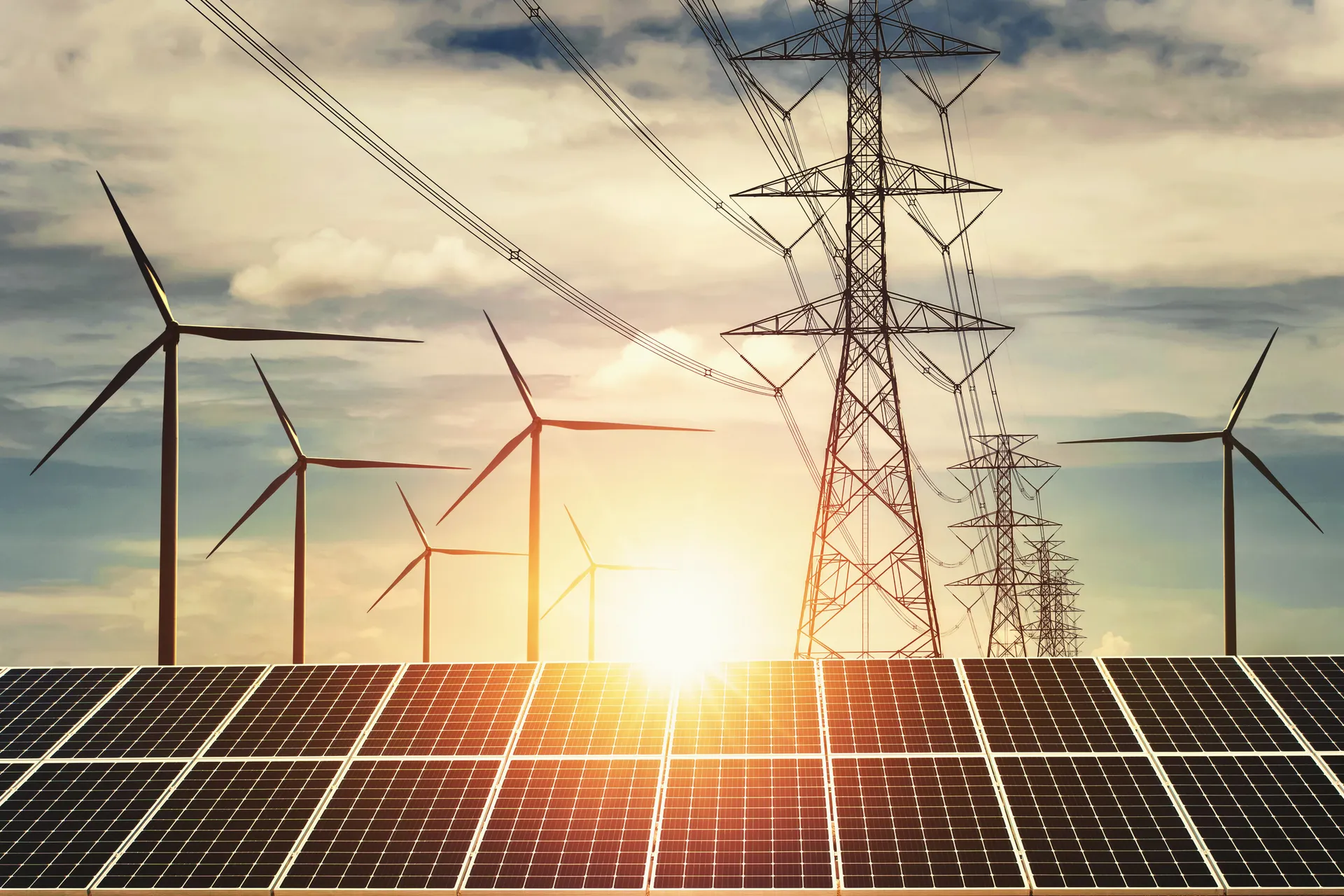Ireland has renewable electricity targets for 2030 set out in the Climate Action Plans since 2021 of 9GW of onshore wind, 5GW of offshore wind and 8GW of solar. There is a specific target of 80% share of electricity generation supplied by renewable sources by 2030. In 2023, 42% of electricity generated came from renewables meaning a fundamental shift in how we develop and operate our electricity system has been and continues to be needed.
Cornwall Insight’s SEM Benchmark Power Curve allows us to estimate how much demand will be met by renewable generation by 2030. Our most recent iteration, released in July 2024 suggests that the Island of Ireland will narrowly miss this 80% target with our report forecasting 74% by 2030.
We have experienced significant expansion of our renewable electricity fleet in Ireland. Solar energy especially is being rapidly deployed, increasing 42% from 2023 to 2024, according to a recent report by the Irish Solar Energy Association. There has also been significant policy announcements this year designed to incentivise the development of offshore wind. Onshore wind however has seen a significant downward growth trajectory recently.
Planning Permission Process
A fundamental aspect to renewable development is securing planning permission for the site. Wind Energy Ireland (WEI), has serious concerns about the numbers of renewable projects being granted planning permission in Ireland. As a consequence WEI is publishing a quarterly dashboard that highlights the volume of wind projects that remain in the planning permission process. To stay on track to reach the 2030 targets, WEI forecasted that 860MW of renewable generation needed to be granted planning permission in the first half of 2024. However, only 228MW was awarded with 459MW rejected and a further 1766MW still in the process. They say that anti-wind county development plans are making obtaining planning permission very challenging.
As well as this existing backlog of projects there is a growing concern about the expiration of planning permission for 854MW of existing, operational wind farms. It has been proposed that planning permission extensions are granted so as not to exacerbate an already overburdened planning system and to ensure operational windfarms are not forced to decommission.
Subsidy Support Schemes
Like any business venture, renewable developers need to develop a business case to justify the investment in their projects. To date the main route to market for these developers has been through government backed support schemes (RESS) that provide certainty of revenue to participants. Over the years, the government have made a number of improvements to the terms and conditions of the scheme to increase participation, most recently to alleviate some of the risk around electricity grid development and planning permission delays, however developers still consider the risk of participation to be high. In 2023, the RESS 3 results were disappointing with only 3 wind projects (148MW) and 20 solar projects (497MW) clearing the auction. It is hoped that participation will be higher for RESS 4, but the auction bid limit has been set lower than expected so it remains to be seen what the results will be.
Engagement with Industry
The key to increasing the levels of renewable generation in Ireland is to encourage all relevant stakeholders to work towards achieving a common goal, learning from each other and progressing the targets in a meaningful, coherent way. It is imperative for key state bodies to have sufficient experienced resourcing to facilitate this process.
Under the Climate Action Plan 2023, a key measure was the establishment of the Accelerating Renewable Electricity Taskforce. A body responsible for identifying, coordinating and prioritising policies required to increase onshore renewable deployment. The membership of this taskforce covers a range of different stakeholders, but there is a notable absence of industry representation on the group. It is important that they are given a full voice at the table to ensure policy decisions do not unintentionally impact the delivery of the 2030 targets.
It is equally as important to acknowledge the significant progress made in increasing renewable electricity generation in Ireland, as it is to recognise that the challenge is intensifying as we progress. Now is the time to build on this momentum and strive to reach as close as possible to our 2030 climate targets.
You can find our more about our SEM BPC here.
You can also download the summary here.
































